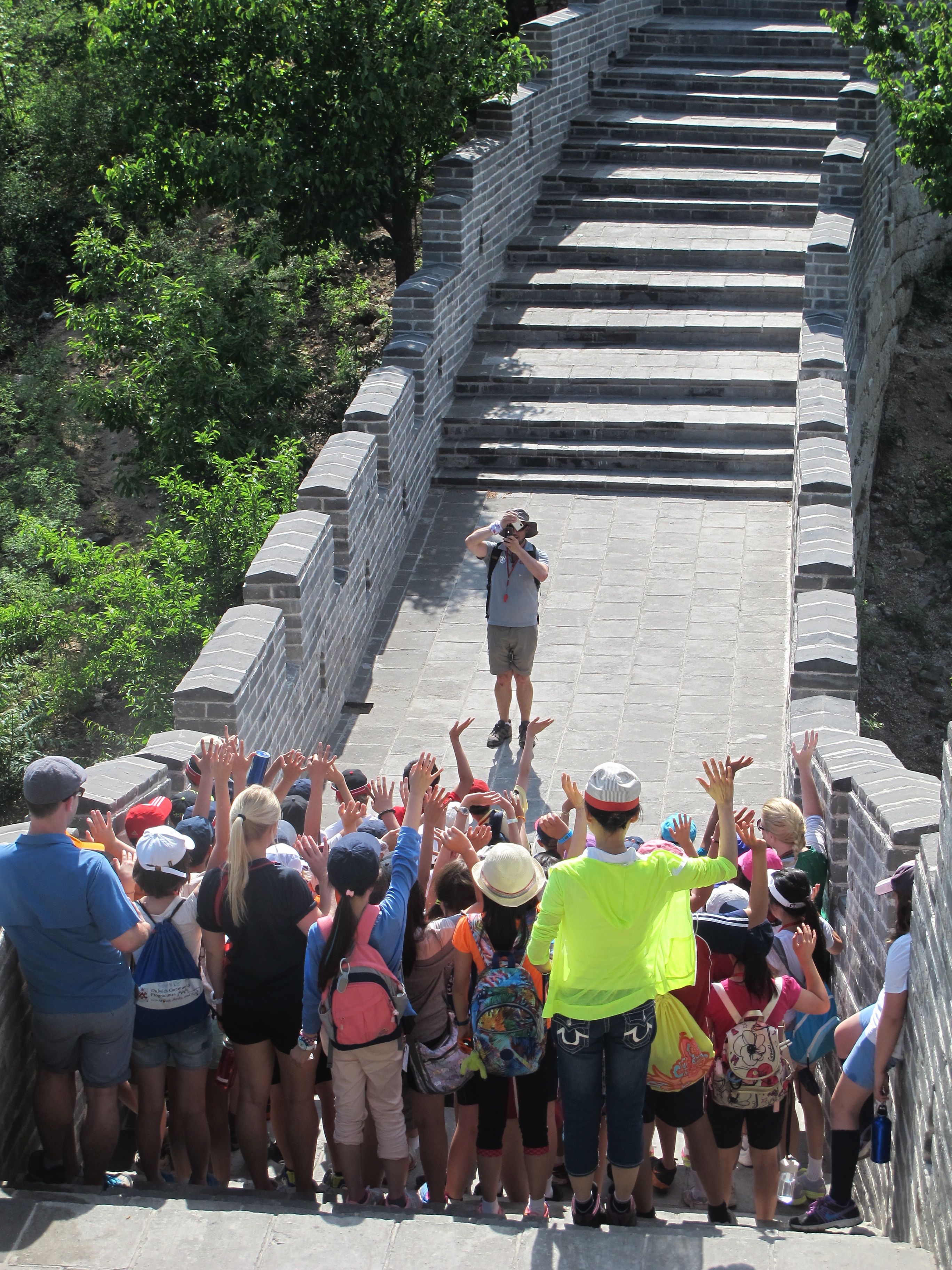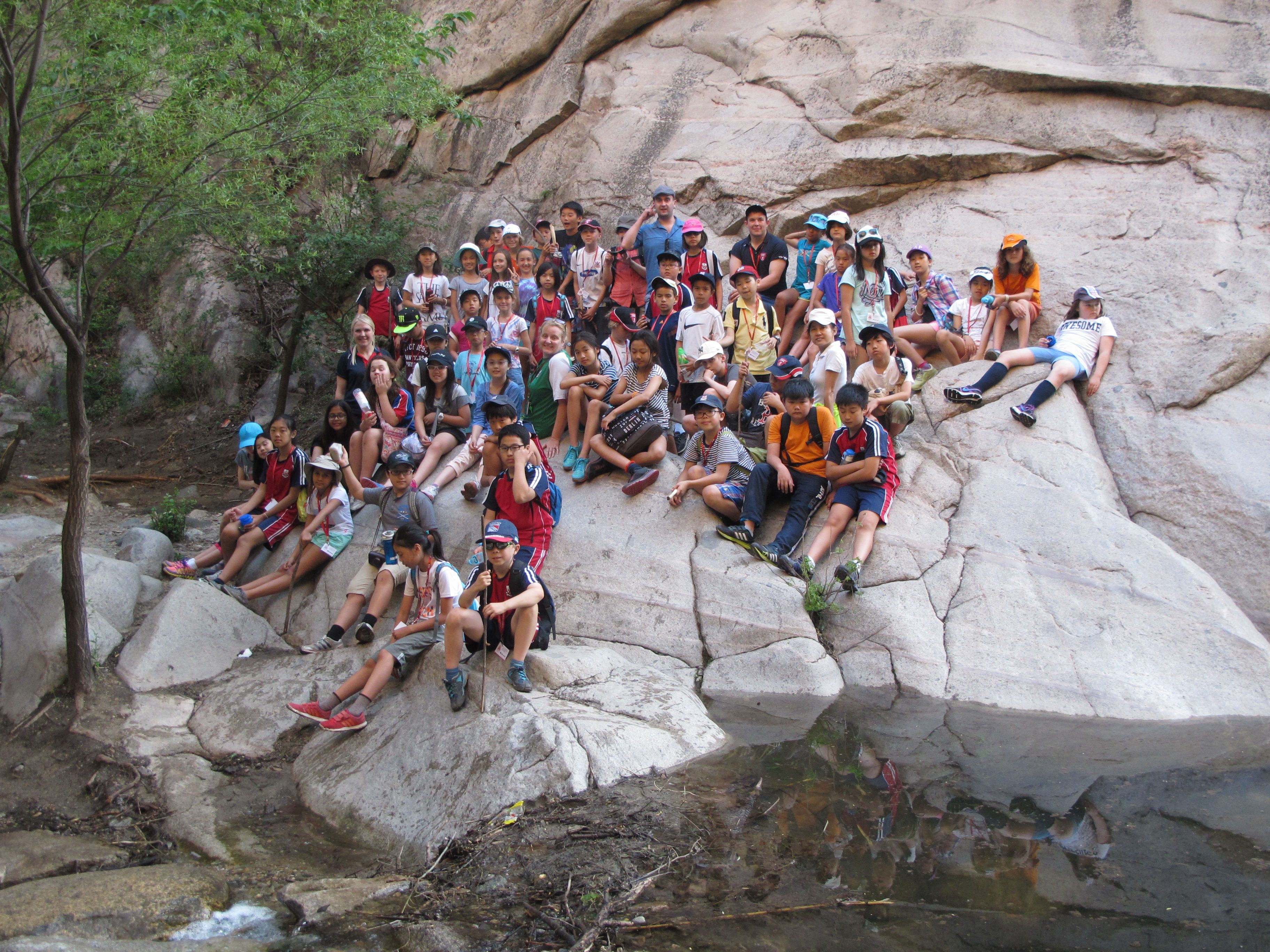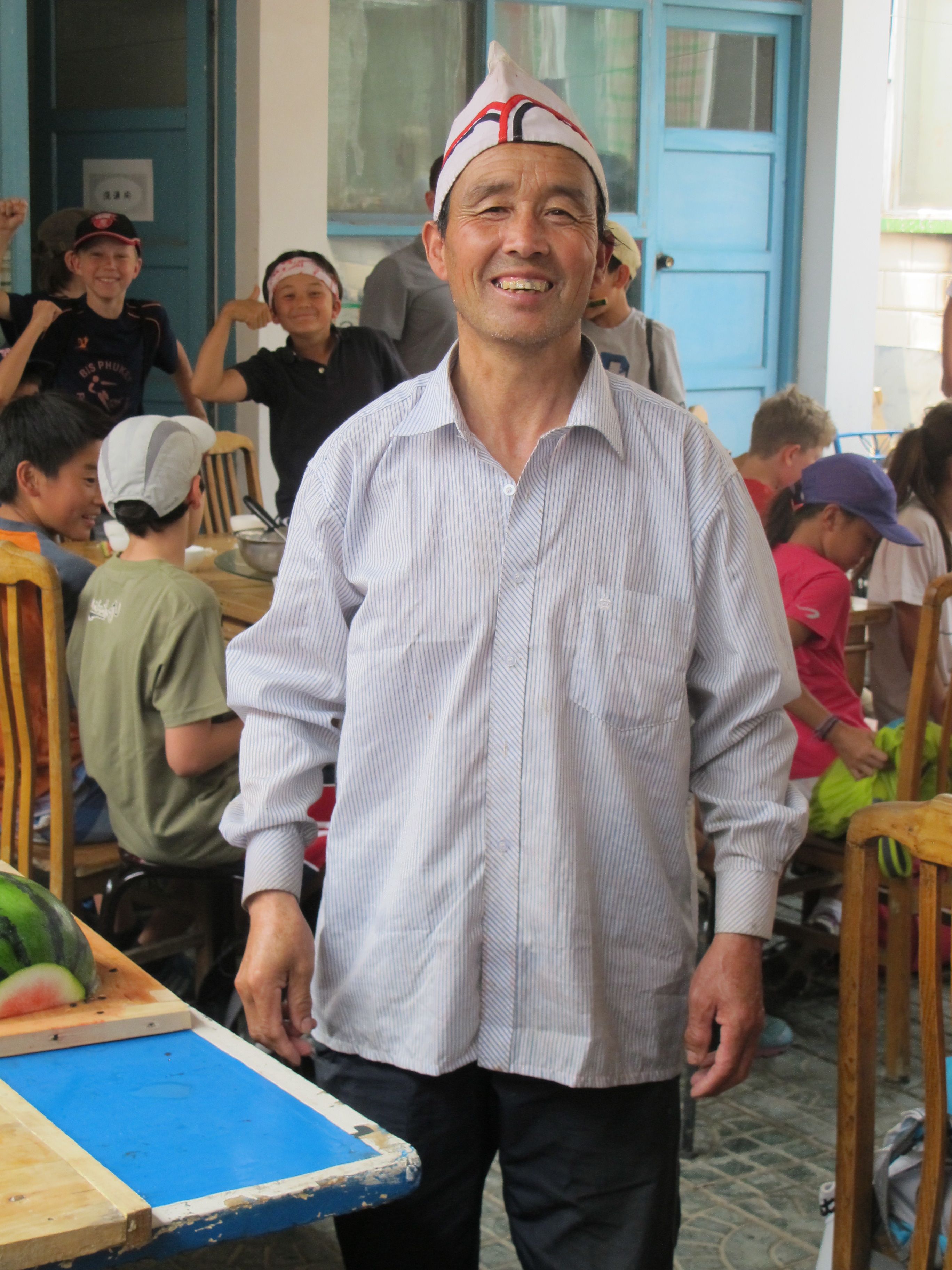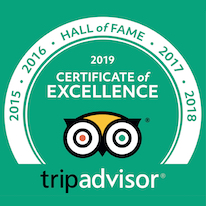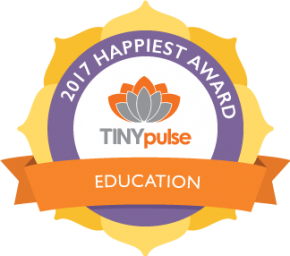Make a Friend
“Let’s Light a Spark Together!”
The words reflecting one of The Hutong’s six company values move across the sports ticker above the stage in front of the track and field of Yangsong Elementary School. Eight lines of students await the oncoming Dulwich College Year Six students underneath the hot, beating sun. As we walk in, the international students file into eight lines of their own so that the lines alternate between Yangsong Elementary and Dulwich College students. The principal of Yangsong Elementary, Mrs. Liu, gets on the stage.
“All right … let’s welcome Dulwich College to our school. Form eight circles!”
As if Principal Liu had touched a magical button, the eight lines of Yangsong students separate into eight individual rings. They link hands with one another and the Dulwich students stand in a ring around their Yangsong counterparts.
Silence. Music. A children’s song:
“Make a friend, Make a friend, I want to make a friend….”
The Yangsong students begin to prance around the Dulwich students in a rehearsed song and dance, stopping when the music stops in order to shake hands and “make friends” as the caller in the music signals. This is Chinese icebreaking at its best, and it does the trick. Uneasily at first, students stop and shake hands with their new “friends” until the song is over.
After the warm-ups, it’s time for the real fun to start. Half the students stay on one side of the playing field where Dulwich students take the lead in playing games with jump ropes, English language games, kicking Chinese hackey-sacks, and essentially running around having a good time.
Meanwhile, the other half of the students move to the opposite side of the playing field where Yangsong students take the lead in teaching Dulwich College the basics in unicycling. Yes, unicycling happens to be one of the specialties of Yangsong Elementary. Apparently, in Huairou county many of the schools practice unicycling so that they can enter national and international events. Some of the local students can even jump rope while unicycling at the same time. The Dulwich students just try to grasp the basics—one student props his unicycle and himself up against a wall in the shade and another is wheeled around shakily by 3 Yangsong students. The Hutong’s very own Annie whizzes around the track. Unbeknownst to the rest of The Hutong staff, she has previous unicycling experience. Although the Dulwich students aren’t able to master unicycling in our short visit to Yangsong, it’s the challenge of the journey and working with our newfound Yangsong friends that make this hot and sweaty morning a perfect school exchange for the Northern Hills Adventure.
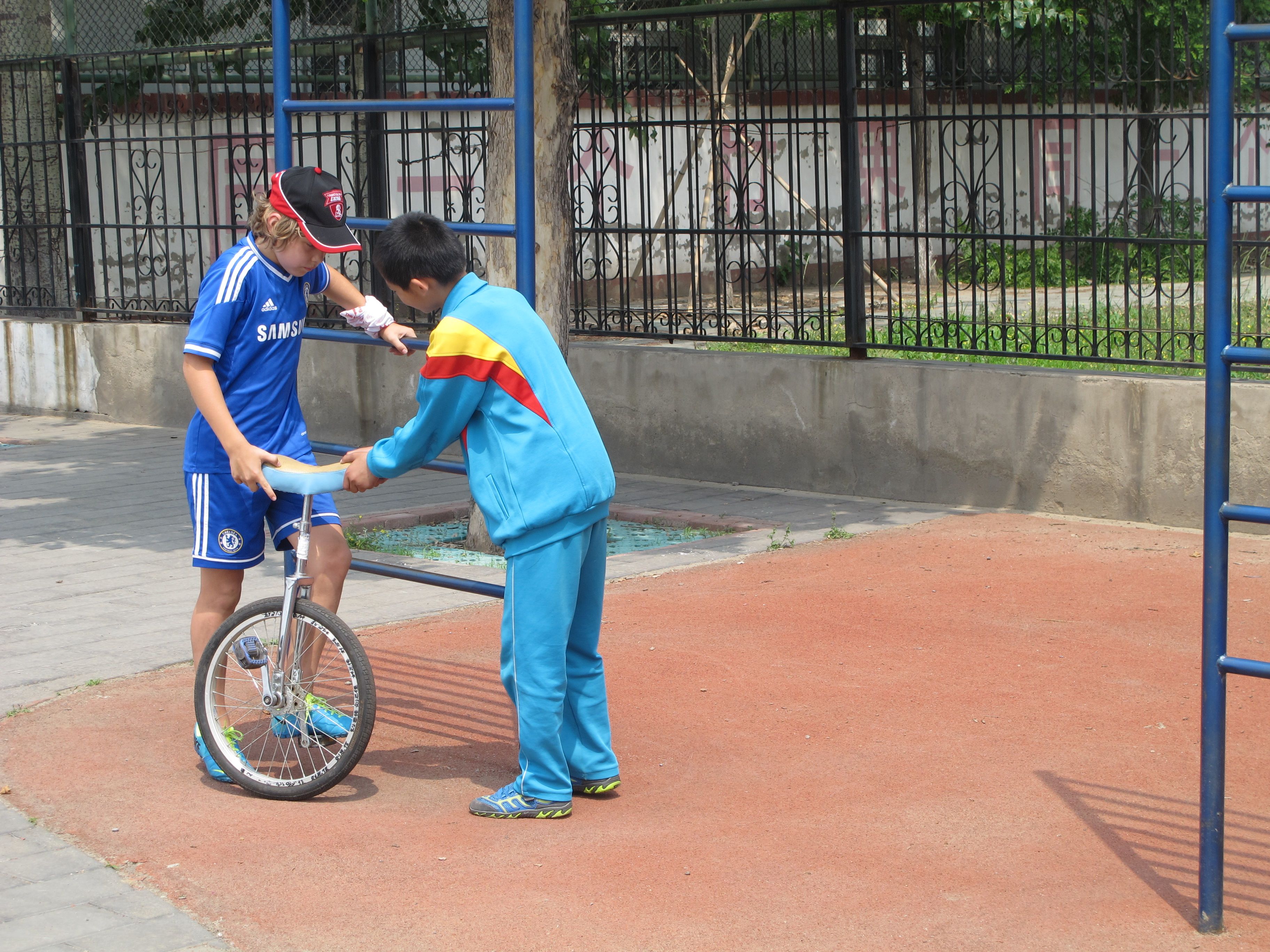
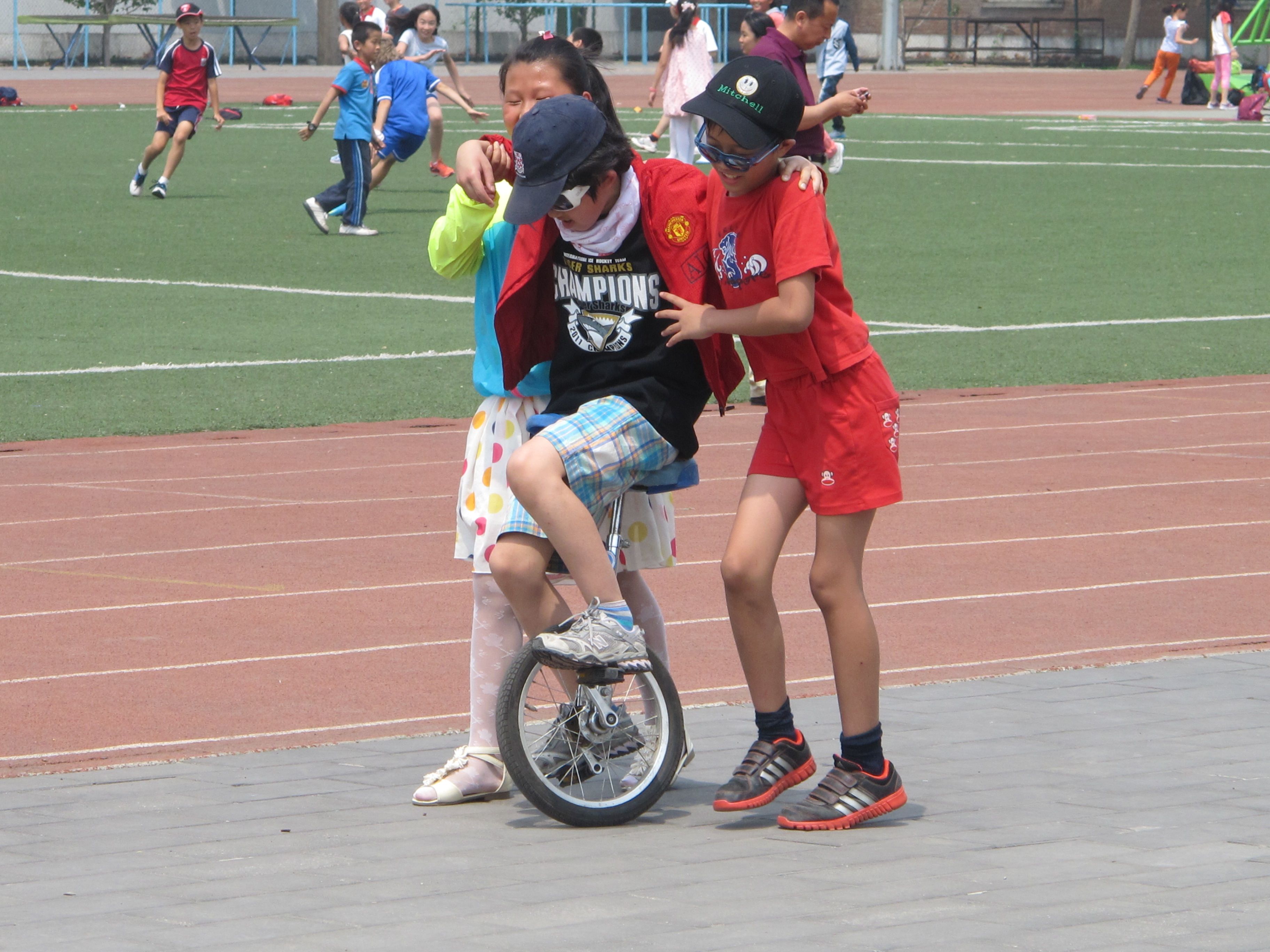
Village Voices and Happy Bears
Fairy tales, political leaders, spring onion pancakes, speech writing, improvised performances, spontaneous songs, and of course scavenger hunts. All of these activites make up the second half of our Northern Hills Adventure. We head to the Great Wall and the nearby village of Tianxianyu for our hiking and village homestays. Dulwich students split into two groups, alternatively one to hike the Great Wall and one to visit the local village on separate evenings.
Despite having to change the original hiking route, Dulwich students are still successful in setting up their campfires for the cookout beneath the stars. Good weather prevails, and The Hutong’s very own Annie wows the crowd with her song about bears. The students make no complaints and enjoy the very Chinese combination of roasting marshmallows in one hand, with a hearty stick of mutton in the other.
While the hike along the Huang Hua (“Yellow Flower”) section of the Great Wall pushes the students physically, the stay in Tianxianyu (literally “Sky Fairy Gorge”) pushes the students to complete artistic, culinary, linguistic, and geographical challenges. Although this visit is the first time that The Hutong has chosen to stay overnight in Tianxianyu, we’ve been frequenting the village for meals for years. The proprietors of the homestays and the grandmasters of the meals and activities are a lovely couple, Mr. and Mrs. Ge. It is largely due to their hospitality and warmth that the stay is so popular with the students. Like a kindly middle-aged wizard, Mr. Ge dons his ubiquitous white chef’s hat, safekeeping the secrets of Tianxianyu’s mysteries.
Students split up into four groups for a beehive of activities in the village. The theme is “village life.” One group writes and performs speeches about the future of Tianxianyu in the face of development. They do so underneath a “Buddhist” tree hundreds of years old which stands in front of gigantic photos of former president Hu Jintao’s visit to Tianxianyu on a previous Spring Festival. Apparently, the speeches are successful and powerful, as local townsfolk gather around just to see what’s happening. Meanwhile, another group sits around a table in Mr. Ge’s brother’s house creating visual storybooks about rural life and themes associated with the village. In Mr. Ge’s home are the two other groups of students. One of the groups gets a hands-on lesson in the creation of Mr. Ge’s scrumptious spring onion pancakes. The other group works with Jeffrey on team building through improvisation.
The final challenge is a grand doozy, as students split into smaller groups to complete a massive 3 hour scavenger hunt in which they explore the intricacies of village life in Tianxianyu. As always, The Hutong makes sure to give the students tasks that encourage the students to interact with the local citizens. The good weather prevails throughout the scavenger hunt, even when the students make the short walk up the hill behind Mr. Ge’s residence in order to pay their respects to a grave located amidst the ubiquitous chestnut trees. The grave is of a martyr who passed during World World II, the youth dying in his teens. Flowers and offerings of food and drink rest beneath the grave.
“Should we say something,” asks one of the students to his teammates.
“I guess so,” another answers. She wears a hat, her face is red, a pencil clutched in her right hand while she hugs The Hutong handbook next to her body.
“Thanks for giving your life for this country,” says another student, stepping forward. “And thanks for helping us complete this part of the scavenger hunt.”
“Let’s go.”
The students walk down the hill to Mr. Ge’s. After the scavenger hunt, the group sits down to another fresh meal of village food, all cooked by him and his wife. As we load up the bus to return to the city, the students turn their heads and wave goodbye to our hosts. The bus passes by the gigantic stone at the entrance to Tianxianyu. It is inscribed with gigantic characters, quoting what President Hu Jintao remarked when he came to the village:
“Tianxianyu is a good place.”
